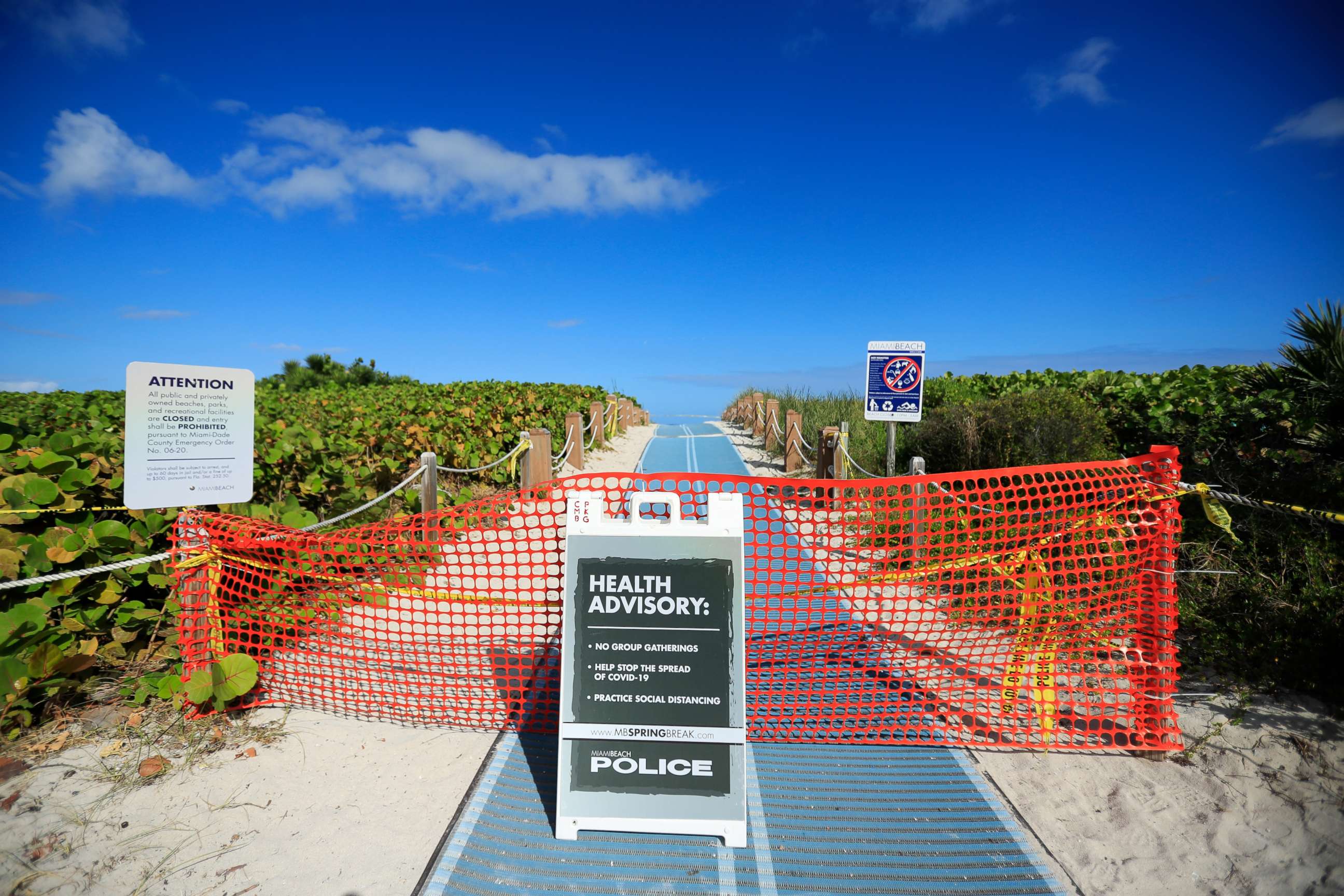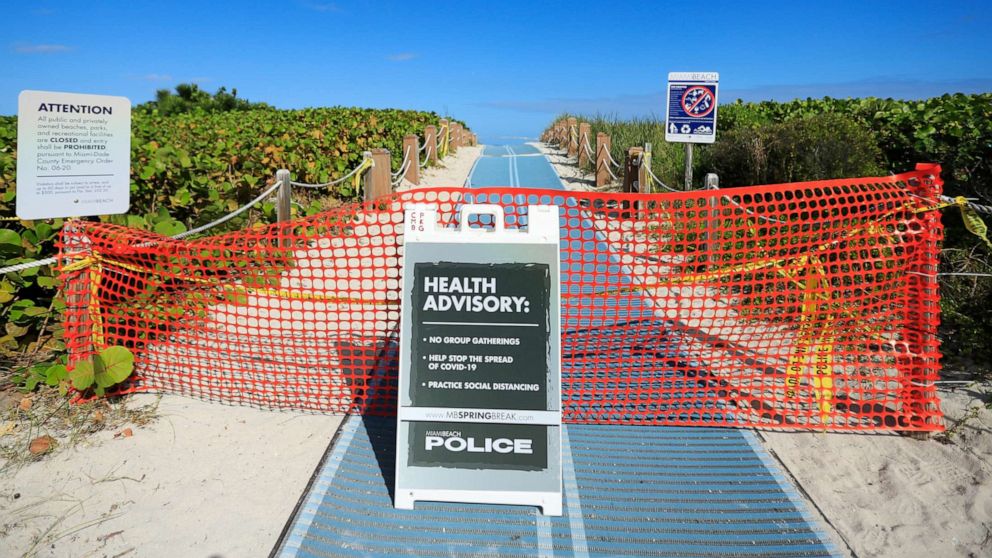What experts say about coronavirus in water -- and what it means for beach season
With the weather warming up and states like Florida announcing plans to reopen beaches, thoughts of beach vacations and weekends at the lake are bubbling up -- and so is the question about whether it's safe to go swimming without contracting the new coronavirus.
Research indicates that other coronavirus strains, such as SARS, can survive 12 days in room temperature tap water, two to three days in room temperature wastewater, and much longer in both at cooler temperatures, according to Dr. Ian Pepper, PhD, director of the University of Arizona Water and Energy Sustainable Technology (WEST) Center.
The survival of coronaviruses in water prompted labs around the country to begin using sewage monitoring as a means of tracking COVID-19.
Although infectious droplets may contaminate water and the virus has been detected in wastewater, experts agree that when it gets into large bodies of water -- like lakes, rivers and oceans -- the concentration of the virus would be so diluted that it would be difficult to contract it.
According to the Centers for Disease Control and Prevention, there's no evidence that people can become infected through recreational swimming, and "the risk of COVID-19 transmission through water is expected to be low."
Tune into ABC at 1 p.m. ET and ABC News Live at 4 p.m. ET every weekday for special coverage of the novel coronavirus with the full ABC News team, including the latest news, context and analysis.
"It is extraordinarily unlikely," said Dr. William Schaffner, MD, professor of preventive medicine and infectious disease at Vanderbilt University Medical Center.
We also know that tap water is safe, according to the CDC, and the Environmental Protection Agency (EPA), and that pools, hot tubs and other chlorinated water sources are not a concern because the chlorine in the water inactivates the virus by disrupting the virus' outer layer.
While experts agree it's unlikely you will get infected with COVID-19 by recreational water activities, they did have another concern about resuming water activities: loosening social-distancing.
Recreational water activities are naturally social; beaches get busy as warm weather draws crowds, friends huddle under large umbrellas and lay side-by-side on towels, and the social atmosphere lends itself to the impetus to share a beer or lemonade by the waterside. While we can feel fairly assured the water itself is safe, experts agreed many of the other activities that accompany a day at the pool or by the beach are not.

Dr. Benjamin Gewurz, MD, PhD, infectious disease physician and associate chair of the Harvard Graduate Program in Virology, emphasized that the primary mode of COVID-19 infection is still person-to-person transmission, and the primary reason to avoid a fun weekend by the water would be to maintain a safe distance from others who could be infected. This is particularly important since people can have COVID-19 and not show any symptoms.
In updated advice released March 2020 by the Pool Water Treatment Advisory Group, swimmers were advised to avoid swimming for now in efforts to practice social-distancing
"As we begin opening back up society and take baby steps toward becoming more normal, I think social-distancing needs to be maintained," Dr. Schaffner said.
And skip sharing the drinks at the waterside.
"I would worry about the risk of sharing a glass of water with someone else, even if they drink from a different section [of the glass]," said Dr. Gewurz. "Infectious coronavirus is detectable in oral secretions of people infected with the coronavirus that causes COVID 19, and I would worry that these could be spread through sharing a [beverage]."
"Sharing a glass of liquid? That makes me uneasy", Dr. Schaffner said.
While we have not yet studied this type of transmission for COVID-19, he said, we know from experiences with other viruses such as hepatitis A that this type of transmission can easily occur.
What to know about coronavirus:
- How it started and how to protect yourself: Coronavirus explained
- What to do if you have symptoms: Coronavirus symptoms
- Tracking the spread in the U.S. and worldwide: Coronavirus map
As society begins to sort out what life will look like as it recovers from the devastation of COVID-19, our weekends by the lake or at the beach may also take on a new normal.
Nancy A. Anoruo, MD, MPH is an internal medicine resident physician with a focus on public health at the University of Massachusetts Medical School, and a contributor to the ABC News Medical Unit.




